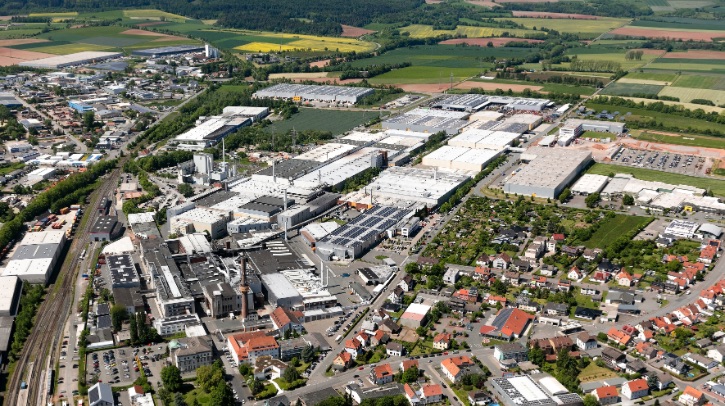Continental’s tire plant in Korbach, Germany has become the company’s fourth plant to receive International Sustainability and Carbon Certification (ISCC) PLUS sustainability certification. This standard certifies that Continental meets specific sustainability requirements in addition to transparent traceability of the raw materials used in the production process.
Certification of the raw materials enables Continental to ensure the end-to-end traceability of materials from renewable and recycled sources. Continental’s plants in Lousado (Portugal), Hefei (China) and Puchov (Slovakia) are already ISCC PLUS-certified.
The certification is based on compliance and documentation of certain processes for the mass balance of raw materials. The mass balance approach mixes fossil, renewable and recycled raw materials. The quantities used are tracked, allowing proportionate allocation at any time. This ensures that the share of certified sustainable materials can be accurately reported.
“We are consistently increasing the amount of renewable and recycled materials in our tires. Certifications contribute to transparency,” said Jorge Almeida, head of sustainability at Continental Tires.
“At Continental, we are working worldwide to make the future of mobility more environmentally friendly. Our ISCC PLUS certification, as well as our latest step, the use of recycled PET bottles in series production, is proof of our consistent implementation here in Korbach,” added Klaus Ohlwein, head of the Continental tire plant in Korbach.
International Sustainability and Carbon Certification (ISCC) was established in 2010 as part of a multistakeholder initiative. It is a globally applicable and leading certification system aimed at promoting a traceable, sustainable, deforestation-free and climate-friendly supply chain.
The UltraContact NXT is Continental’s first production tire using mass balance-certified materials. Examples include synthetic rubber made from bio-based and bio-circular raw materials or carbon black, which is produced in part using oil from circular processes. It has been manufactured at the Lousado plant in Portugal since 2023.
Continental aims to become completely climate neutral by 2050. This means that all new tires from Continental are expected to be made entirely from sustainable materials. The plant in Korbach also produces bicycle tires and has more than 3,600 employees.



